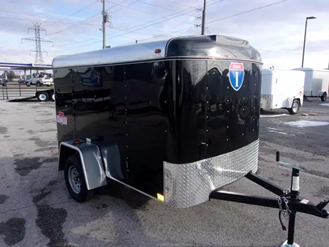
Michael Snow is the CEO of TrailersPlus, located in the metropolitan Boise area. In the following article, Michael Snow provides a few key tips to keep a trailer in top working condition, the proper maintenance trailers need, and how to save money by avoiding potential long-term issues.
Trailers are instrumental vehicles for business and personal use. They can be used for hauling construction materials or hauling family camping gear and home project materials. And each type of use comes with its own kind of wear and tear that needs to be assessed to keep these vehicles in good working order.
From regular inspections to assessing wheels, fenders, brakes, and springs to repairing and replacing aluminum skins or interior floors and walls, all trailer owners should be aware of the maintenance tips that can keep their investments in top condition.
Below, Michael Snow of TrailersPlus provides a few strategies for proactive maintenance and scheduled servicing that can prolong a trailer’s lifespan and enhance its safety.
Michael Snow of TrailersPlus Says Proactive Maintenance Saves Time and Money
Proactive maintenance involves identifying and addressing potential issues before they become actual problems. Regular inspections, scheduled servicing, and timely replacements of worn-out parts are all great ways to prolong the life of a trailer and its parts.
For example, under-inflated tires can cause premature wear and tear or even blowouts – an obvious safety hazard for trailer drivers and everyone else on the road. At the same time, Michael Snow of TrailersPlus reports that over-inflated tires can also compromise stability and traction.
According to the National Highway Traffic Safety Administration, it’s best to check tire pressure at least once a month. And experts recommend replacing trailer tires every three to five years, even if they still look great. Keeping an unused trailer stored up on blocks, keeping tired out of the sun, and ensuring they’re properly inflated can help get those tires to the five-year mark.
Michael Snow of TrailersPlus says that other proactive and money-saving maintenance measures trailer owners can take include:
- Regularly lubricate hinges, locks, and springs to prevent rust and ensure safe hitching.
- Inspect trailers for corrosion if they’re used in harsh weather conditions to prevent structural deterioration.
- Check seals, joints, and roofs for degradation that can cause leaks and water damage, especially before taking a long trip.
Scheduled Servicing for Optimal Trailer Maintenance
Michael Snow of TrailersPlus explains that just like any vehicle, trailers require regular service inspections from a professional. These inspections are crucial for spotting problems with axles, bearings, brakes, and lighting systems.
The frequency of service visits can vary depending on the usage of the trailer. However, a standard recommendation is to get a trailer inspected and serviced at least once a year. Of course, these may need to be more frequent if a trailer is used heavily – especially in harsh conditions such as on icy, salted roads.
Brake adjustments should be made roughly every 3,000 miles, and wheel bearings should be repacked or replaced every 12,000 miles or annually, whichever comes first, to avoid safety issues and more costly repairs down the road, according to Michael Snow of TrailersPlus.

Thinking Through Maintenance Tasks
Just like any other piece of machinery, cleaning a trailer regularly will help keep it in great shape. Cleaning a trailer, especially the undercarriage, can prevent rust and corrosion and extend its lifespan. But in cases when an undercarriage has been exposed to road deicing chemicals, it’s crucial to keep power washers away from sealed components.
Michael Snow of TrailersPlus says that this is a great example of the ways in which maintenance tasks that seem simple and routine require a bit more thought. High water pressure and the wrong sorts of chemical soaps can cause more damage under certain conditions.
It’s also crucial to always use the correct hitching equipment to reduce strain on the trailer. But the “right” hitch will depend on the weight and size of the load being towed. That’s why trailer owners need to know the different types of hitches (such as a weight-distribution hitch for times when a trailer weight exceeds the towing vehicle’s capacity) in order to maintain safety on the road.
Michael Snow of TrailersPlus explains that lighter loads may only require a simple ball hitch. However, even in this case, it’s up to the trailer owner/driver to ensure that the hitch ball matches the trailer’s coupler for a secure connection.
Summary
Keeping a trailer in top condition requires proactive measures, scheduled servicing, and following industry best practices. Regular inspections, proper tire maintenance, timely servicing of essential parts, and regular cleaning and repair can all enhance a trailer’s longevity. And in the face of any structural or mechanical damage, prompt repair is crucial.








